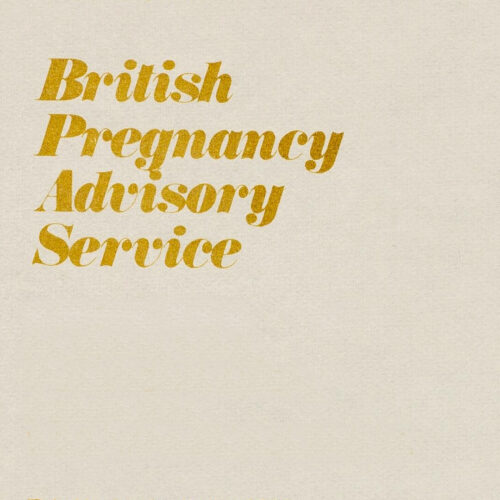

The British Pregnancy Advisory Service (BPAS) began as the Birmingham Pregnancy Advisory Service, created to provide access to safe, legal, and affordable abortions after the enactment of the 1967 Abortion Act. Birmingham had been a centre of opposition to the legalisation of abortion, and members of the local branch of the Abortion Law Reform Association (ALRA) sought ways of ensuring the new Act was implemented, and women given access to the services they needed. Soon after the Act came into force in 1968, the need for similar help throughout the nation became evident, and as more BPAS branches and surgical clinics were established, ‘British’ replaced ‘Birmingham’ in the charity’s title.
Central to BPAS’ emergence and development were the humanist Martin Cole (chair of Birmingham ALRA branch), Nan Smith (who became BPAS’ first Director), and François Laffite (BPAS’ first chairman). Lifelong humanist Diane Munday – at that time vice chairman of ALRA – was also instrumental in establishing BPAS, later becoming its parliamentary, press, and public relations officer and main spokesperson. She lectured, broadcast, and debated tirelessly for women’s right to safe, accessible, and compassionate care.
The Abortion Act 1967 legalised abortion in England, Scotland, and Wales when performed by a registered medical practitioner, authorised by two doctors, on the grounds that continuation of the pregnancy would result in serious injury to the woman’s physical or mental health, or to that of her existing children, or in the event of substantial risk that the child would be born severely handicapped. For decades prior to the Act, campaigners had been working for changes to the existing Victorian legislation, which meant safe abortion was limited to those who could afford costly private care, with many others seriously endangered by self-induced or so-called ‘backstreet’ abortions. Members of ALRA were at the forefront of this campaigning, and subsequently spearheaded the provision of advisory services in Birmingham, London, and elsewhere in the country, giving rise to the development of BPAS.
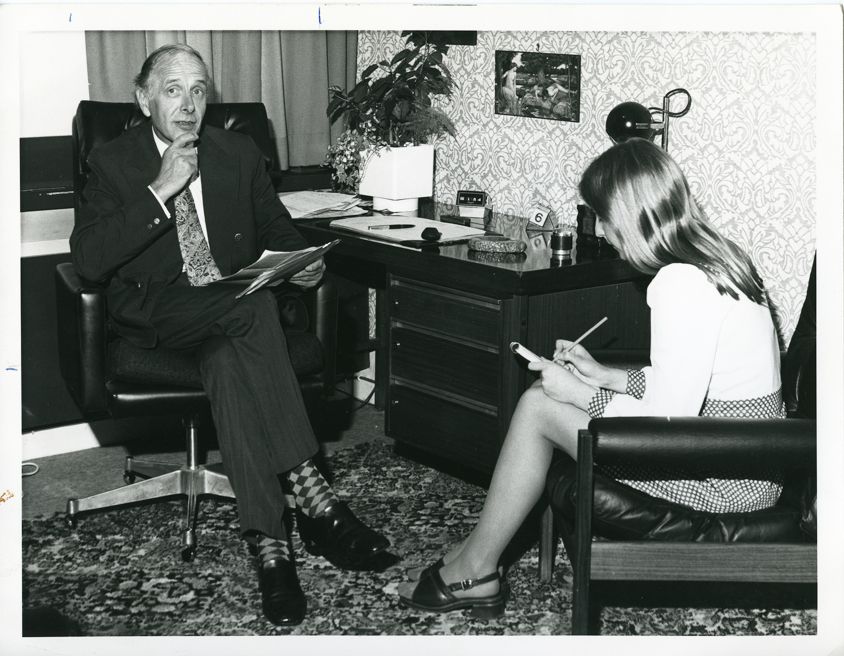
The Abortion Act was passed on 27 October 1967, and came into effect in April the following year. It was clear from the outset that the influence of vociferous anti-abortion voices – including in Birmingham, Liverpool, Leeds, and Glasgow – would continue to affect women’s ability to access the services they needed, with many doctors refusing to sanction or perform abortions. In Birmingham, lead among these was Professor Hugh McLaren, who was unrelenting in his opposition to the law, and a powerful influence on other gynaecologists in the West Midlands. Members of the Birmingham ALRA branch, including its chair Martin Cole (a lecturer in Genetics and Reproductive Biology at Aston University), François Lafitte, Nan Smith, and Philip Cauthery, proffered the idea of a service which would connect women with sympathetic doctors, who could then refer them on to practitioners willing to perform legal abortions. This idea was brought to the ALRA executive committee.
Following informal discussions with a Charity Commissioner, the originally proposed name ‘Abortion Aid’ was rejected on the grounds that the numbers of those requiring abortions at any given time might not be sizeable enough to meet the criteria for charitable status. ‘Pregnancy Advisory Service’, on the other hand, would encompass all those experiencing pregnancy. The Birmingham Pregnancy Advisory Service was formally registered as a charity on 14 July 1968.
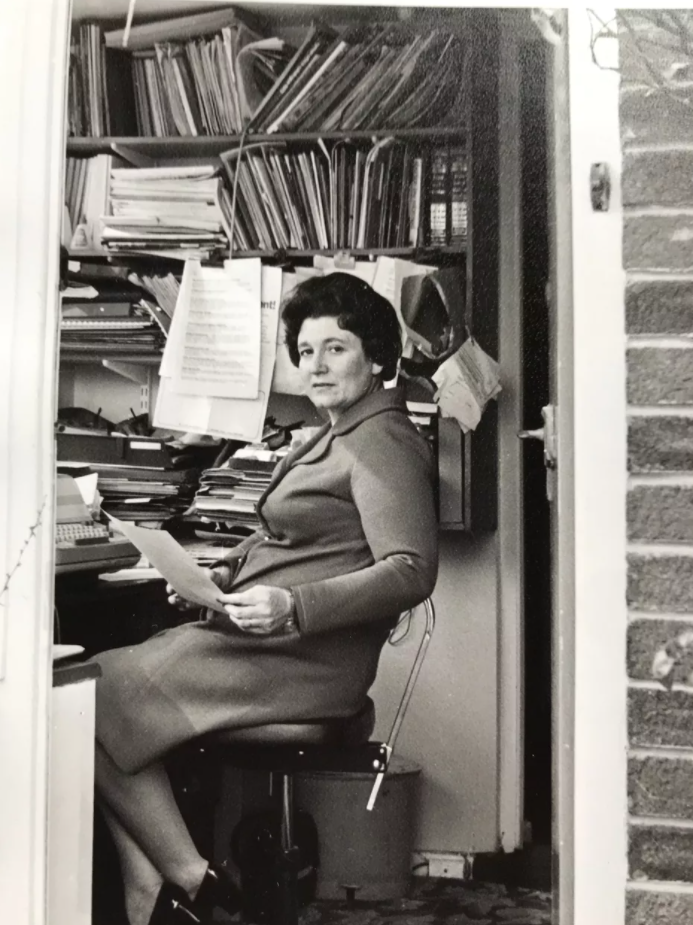
Initially using the front room of Cole’s home for consultations, the Birmingham Pregnancy Advisory Service began work from the day the Act came into effect. From here, patients could be referred to private clinics registered to provide legal abortions. Shortly afterwards, premises in Birmingham city centre were leased as an advisory centre, and in December 1969, BPAS was able to open a private, non profit making abortion clinic in Edgbaston, jointly managed by Cole and Cauthery. With staff and surgeons employed directly, this avoided the exploitative practices of some commercial clinics. Provision continued to expand throughout the 1970s, with surgical nursing homes and clinics opening in Brighton, Leamington Spa, and Liverpool, and advisory centres being set up around the country. The Birmingham Pregnancy Advisory Service was reconstituted as the British Pregnancy Advisory Service Ltd (BPAS).
Also formed in 1968 was the London based Pregnancy Advisory Service, again spearheaded by ALRA members: Alan Golding, Sara Abel, and Sylvia Ponsonby. Like the Birmingham Pregnancy Advisory Service, its London counterpart registered as a charity with the aim of providing non-exploitative assistance to woman experiencing unwanted pregnancy, helping them to access support within the bounds of the 1967 Act. Their Margaret St Bureau was opened in November 1968, counselling approximately 3000 women in its first year. In 1971, PAS opened the Fairfield Nursing Home in Buckhurst Hill, and later another assessment centre in London’s Fitzroy Square. Later still, the Rosslyn Clinic in Richmond and premises in Charlotte Street helped to meet the ongoing demand for services. In 1996, PAS merged with BPAS.
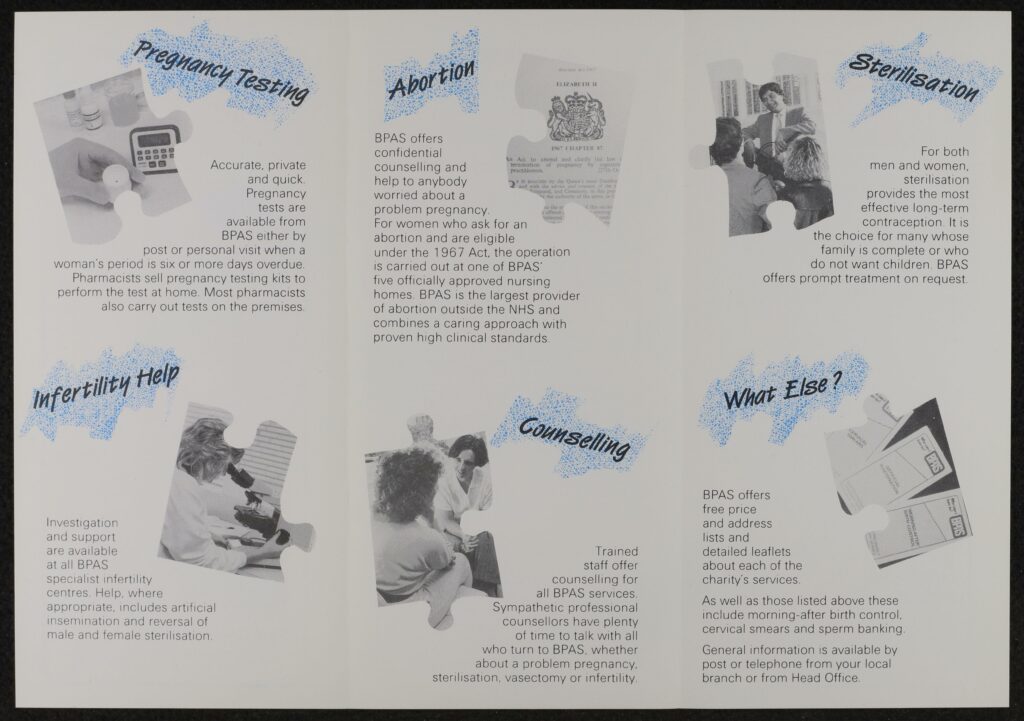
In the years since its formation, BPAS has increasingly worked with the NHS to ensure that access to abortion is equitable and free. Today, over 95% of women who use BPAS’ services have their treatment paid for by the NHS, and BPAS runs more than 70 reproductive healthcare clinics across England, Wales, and Scotland. Now, as well as abortion provision, BPAS provides a range of services in the areas of pregnancy, contraception, fertility, and sexual health. The charity continues to work for ‘a future where every woman can exercise reproductive autonomy and is empowered to make her own decisions about pregnancy’. To further this end, BPAS worked and campaigned hard to gather and publicise evidence of the benefits for women of the emergency legalisation of telemedicine for early abortions (passed to cope with the coronavirus pandemic). It is largely due to these efforts that this advance for women’s reproductive rights is still on the statute books.
As seen in the examples of BPAS, ALRA, and many other aligned groups and individuals, humanists have always been prominent in championing women’s reproductive rights, advocating for laws rooted in reason and compassion. Humanists UK has worked for the establishment of buffer zones around abortion clinics (including through BPAS’ Back Off campaign), for the provision of the at-home abortion pill, and for the decriminalisation of abortion in Northern Ireland. Alongside BPAS, Humanists UK is a member of Voice for Choice, a national coalition of organisations campaigning for women’s choice in abortion, and champions the need for comprehensive relationships and sex education in schools.
Abortion Law Reformed, Keith Hindell and Madeleine Simms (1971)
BPAS Papers | Wellcome Collection
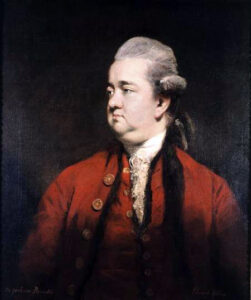
“Yet, upon the whole, the History of the Decline and Fall seems to have struck root, both at home and […]

Not by the Creed but by the Deed. Motto of the Society for Ethical Culture of New York, founded in […]
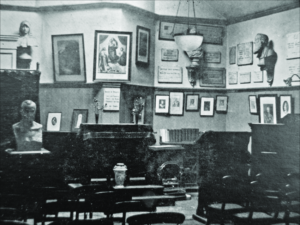
No creative thinker has so governed… my mind as the French genius who framed the maxim – “Love for principle, […]
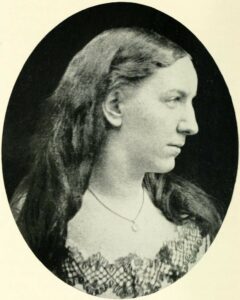
[Ouida’s] exaggerated enthusiasms made readers smile, but they also made them think. It would be difficult to overstate the effect […]